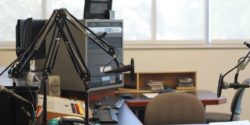Just east of San Diego, California in El Cajon is Grossmont College, home to online college radio station Griffin Radio. An extension of the community college’s Media Communications program, Griffin Radio is a “practical applications laboratory,” providing students with experience running and operating a radio station.
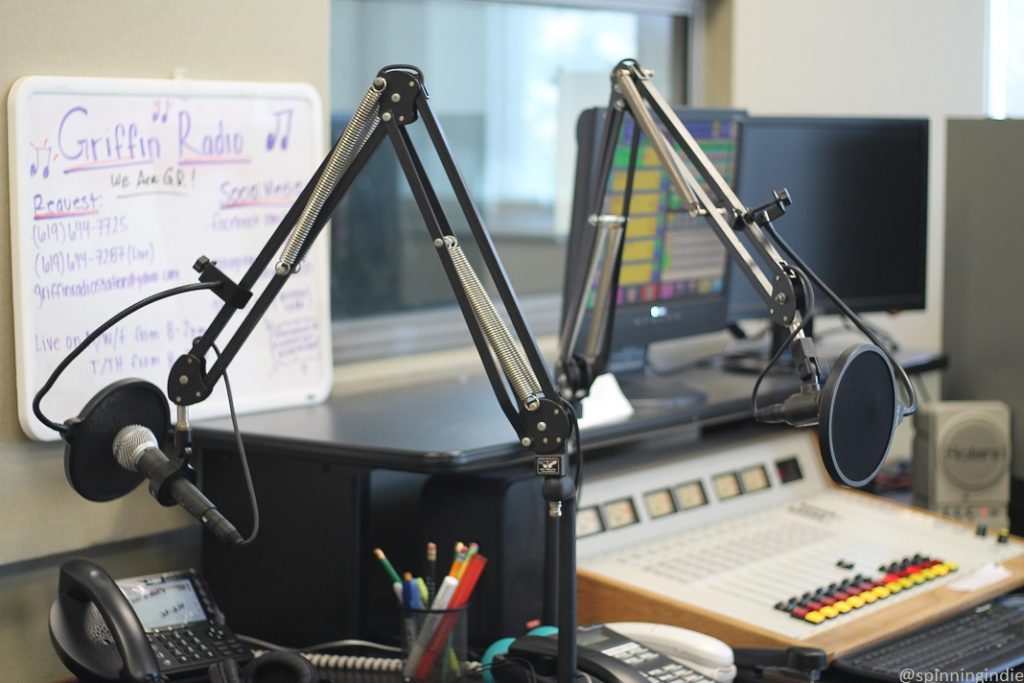
Griffin Radio is the descendant of AM carrier current station KGCR, which dates back to at least the 1970s. A 1986 piece in the Los Angeles Times explains the state of the station at the time, although misstates the station’s lengthier history:
Grossmont College’s tiny KGCR, which went on air 18 months ago and now broadcasts Monday through Saturday, 8 a.m. to 7 p.m., has three formats. The first hour is devoted to jazz; 9 a.m. to noon is alternative music, and noon to 7 p.m. is Top 40.”
Call letters were eventually changed to KGFN, with the station ultimately getting renamed Griffin Radio after it dispensed with its carrier current broadcast. At the station since 1997, General Manager/Faculty Advisor Evan Wirig told me that the station’s AM carrier current transmissions inexplicably only went to the library. He remarked that the rationale behind transmitting radio in a quiet library space never made sense to him, although the speakers under the bookstore were appreciated.
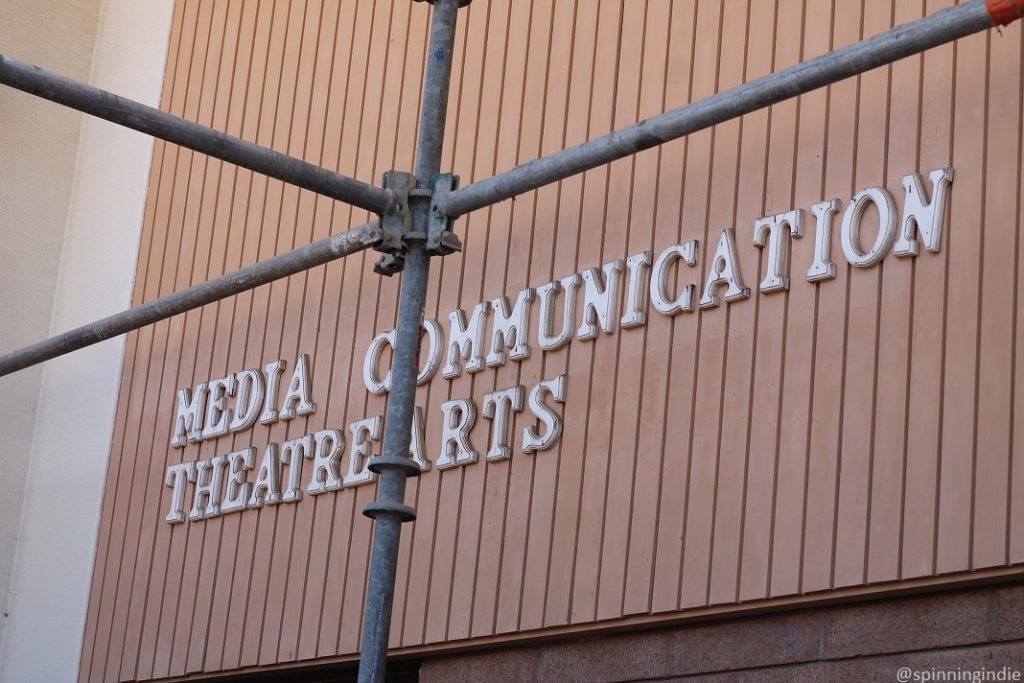
He ended the carrier current broadcasts around 2000 and joked that prior to that one could apparently hear the AM broadcasts under Grossmont College’s old lamp posts. Things have changed quite a bit since then and the campus continues to evolve, made apparent to me after I navigated through a labyrinth of construction adjacent to the Digital Arts building where the station is housed.
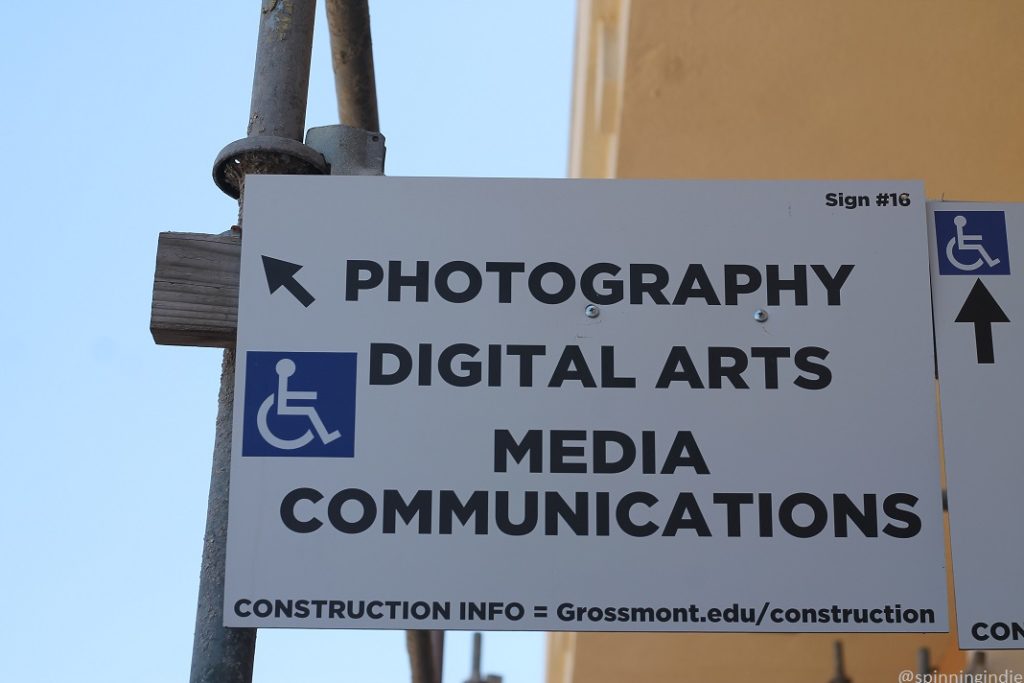
A long-time radio fan and media industry veteran (he met his wife while doing college radio), Wirig seems to relish his current role as mentor and teacher. Like a proud parent, he enthusiastically shared anecdotes about students and alumni from the program, marveling at their achievements. Many have gone on to radio and media industry jobs and students regularly win broadcasting awards from various organizations.
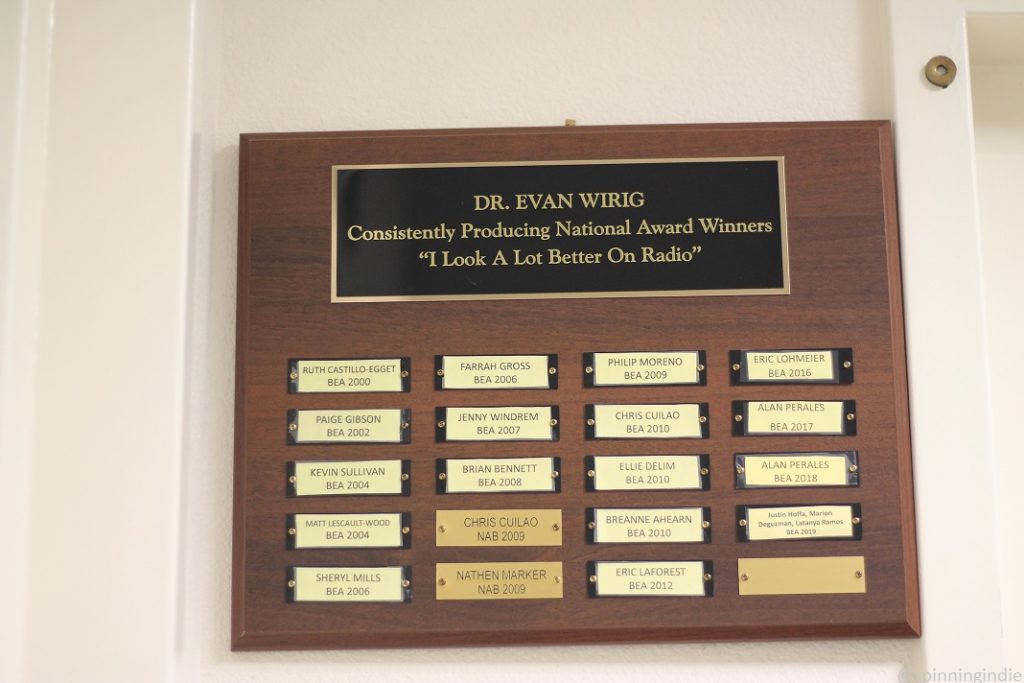
Like most college radio stations, Griffin Radio has student leaders, regular air shifts, and many off-air projects, from promotional activities to production work. Live programs typically air between 8am and 3pm on school days. During my summertime visit students were not around, although the station runs on automation. Down the hall from the Griffin Radio studio, a journalism “Bootcamp” was underway, with students from various colleges getting a week-long crash course in hands-on journalism. Topics and projects included editing, podcasting, news reading, and radio news.
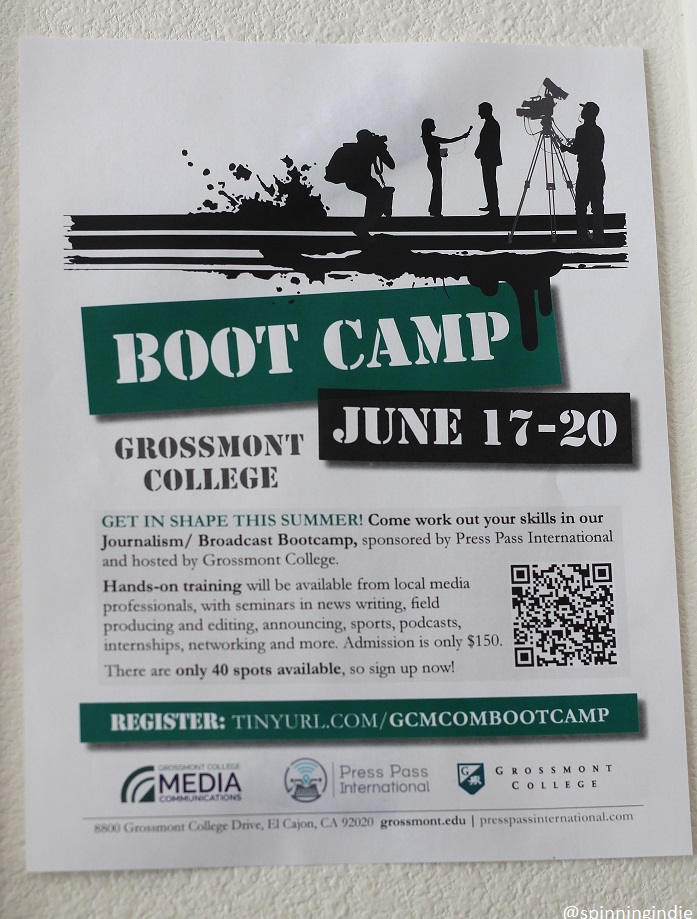
Although separate from the academic year’s radio program, there’s certainly overlap between the boot camp and the three semester long radio series. Those wishing to participate in Griffin Radio must first take a class in basic audio production or basic announcing. Advanced students have the opportunity to take on major leadership roles at the station, including Station Director, Program Director and News Director. While those positions are hired by Wirig; the student leaders are tasked with interviewing and hiring candidates for additional roles, including Production Manager, Music Director, and so on.
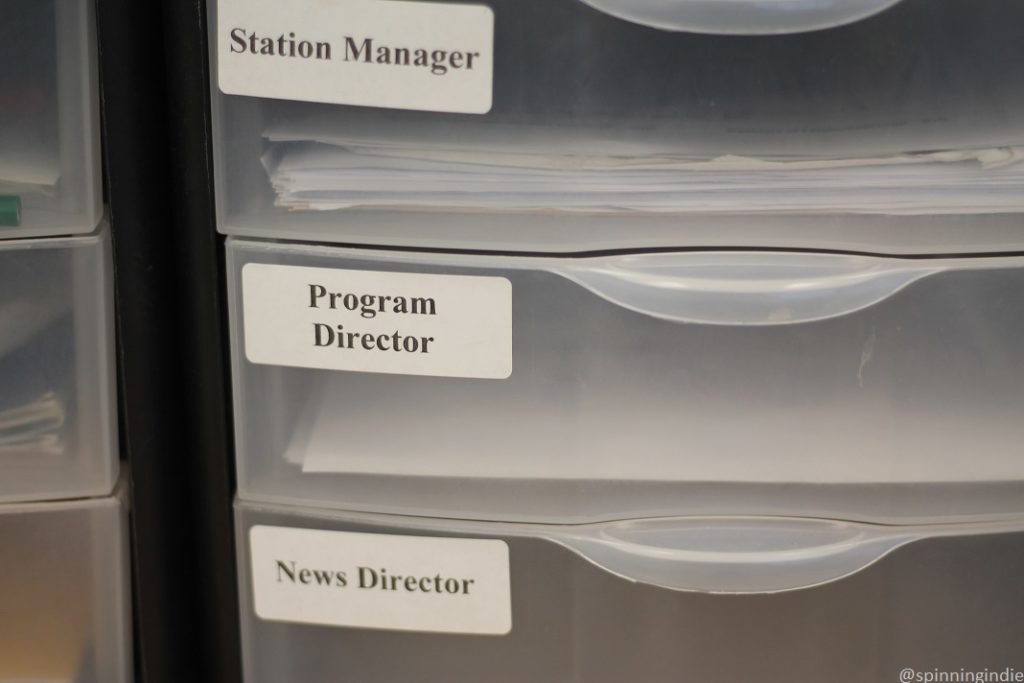
For the most part students are selecting the music that airs on Griffin Radio, which coalesces around a format that Wirig dubs “college top 40.” Encompassing a wide array of genres, the sounds include oldies, new age, rap, hip hop, independent music, country western, Broadway tunes, 80s new wave, progressive, metal, alternative and even holiday music. He added that it’s a “good, eclectic mix” that focuses mainly on the “college audience.” Although they are free from FCC rules as an internet station, Griffin Radio still eschews profanity-laden tracks and avoids material “promoting a hostile environment,” as Wirig relayed.
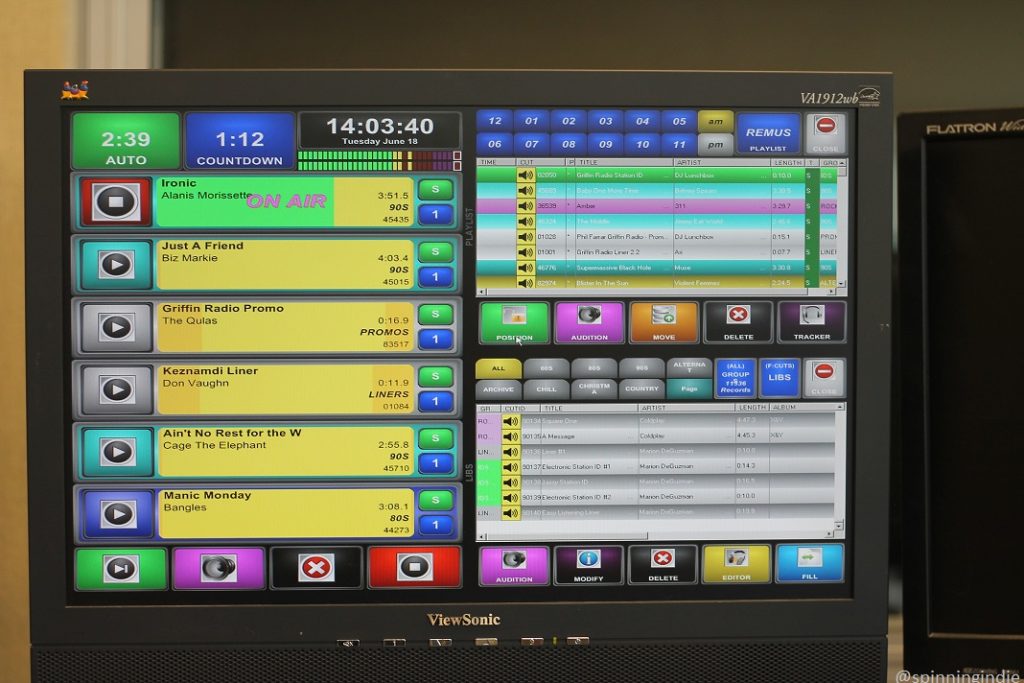
Wirig has high standards, telling me, “I expect a degree of professionalism.” Students can only play music housed in Griffin Radio’s digital library and when there isn’t a live show, automation kicks in. Occasionally bands play in the spacious station space or on its adjacent balcony. Additionally, Griffin Radio regularly does remote broadcasts from campus events, including career fairs and transfer days.

As he’s preparing students for real world, industry jobs, Wirig explained that for him, “hands on” learning is critical. “You just can’t learn outside of doing it,” he remarked. While students are gaining exposure to industry standards, like music rotation, they are also given the opportunity to do specialty shows and podcasts (recent ones have dug into musicals, urban legends, and the urban dictionary). Some students have done shows in their native languages, including Latinx Fest (in Spanish) and a techno show in Japanese; both shows drew audiences from afar, including Japan and just across the border in Mexico. One long-time regular Griffin Radio listener even sends DJs pizza when he is impressed by what they are doing on-air.
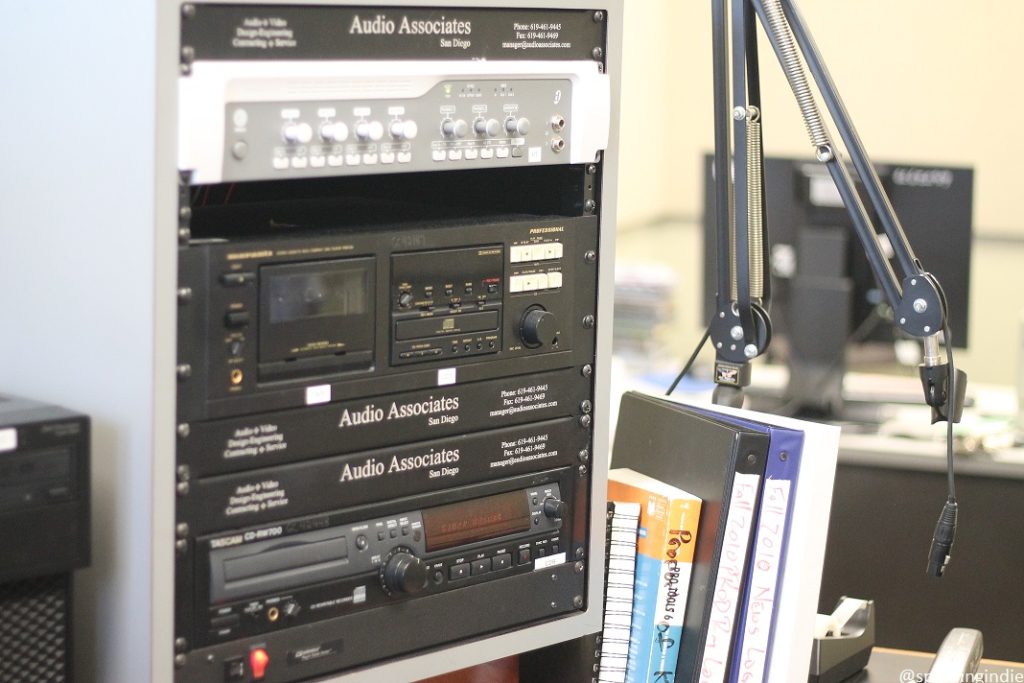
As we wrapped up my tour, Wirig waxed philosophical about journalism and media, remarking that the program continues to reinvent itself and that media is “very resilient.” Pointing out that, “leadership never changes” and that “good audio will always be good audio,” Wirig clearly relishes watching his students grow and succeed. “I will never give up on anybody who keeps trying,” he opined.
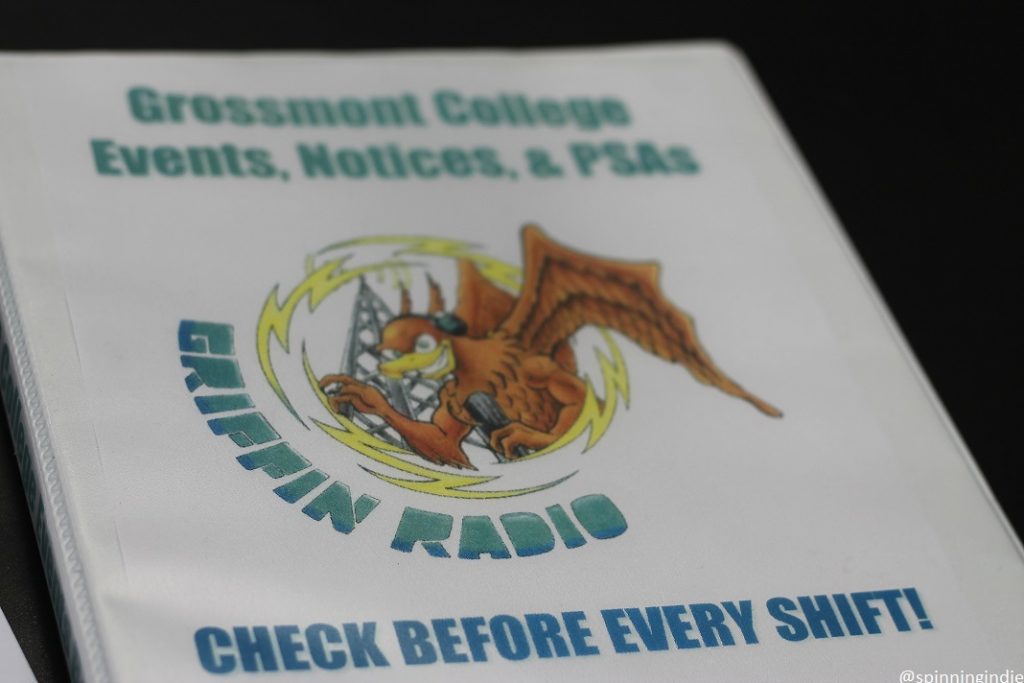
Thanks to Evan Wirig for the wonderful visit to Griffin Radio. This is my 159th radio station tour report and my 104th college radio station tour. Read all of my radio station visits in numerical order or by station type in our archives. Also, you can hear some tidbits about my San Diego-area college radio travels on Radio Survivor Podcast #202.

